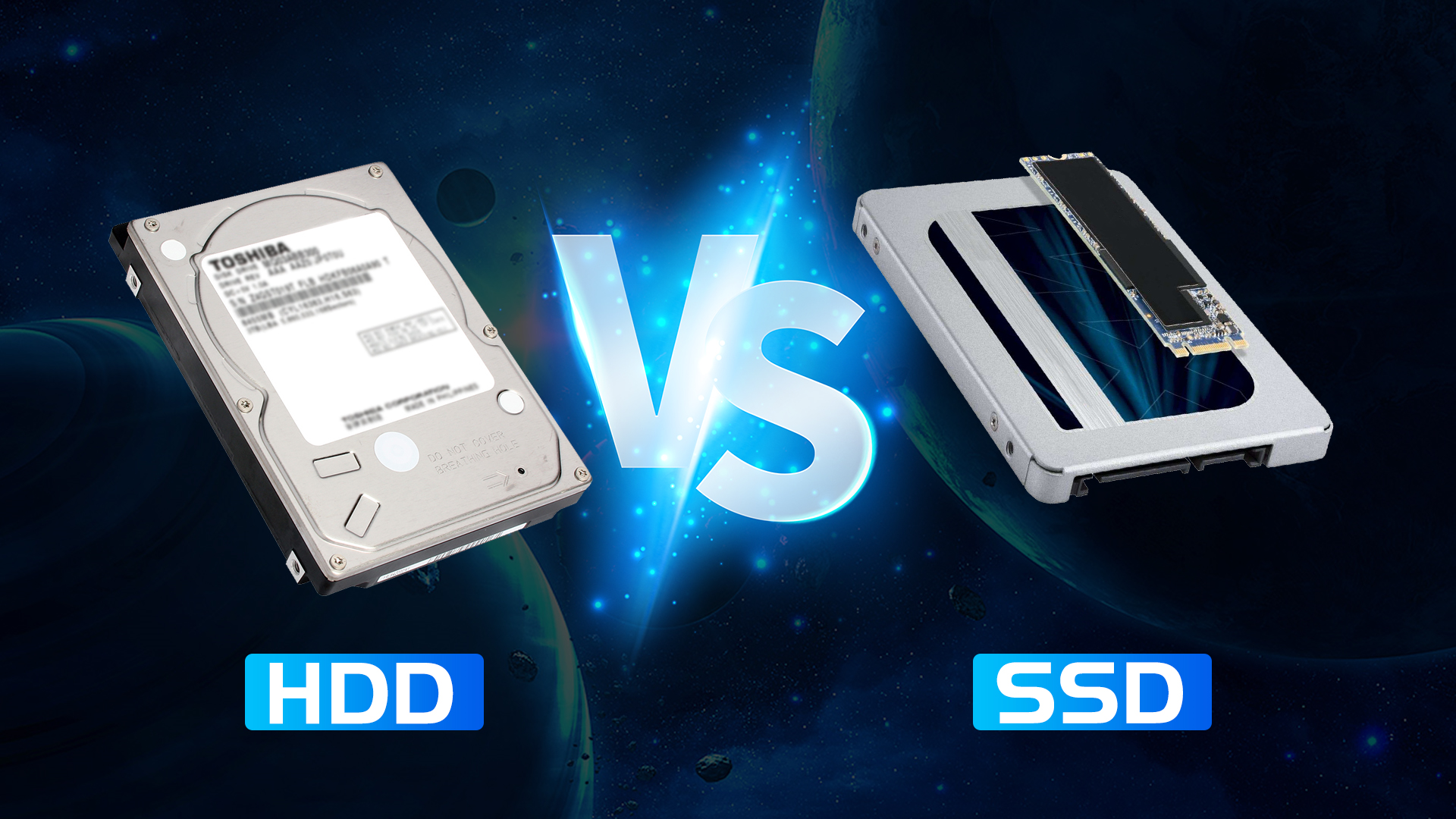Our Location
Baniyas Square, Dubai - U.A.E

In recent years, many users have been transitioning from traditional Hard Disk Drives (HDD) to Solid State Drives (SSD) for their laptops and computers. But do you know how many types of SSDs are available, and which one is compatible with your device? In today’s blog, Vision TS will explore the advantages of SSDs and why they are superior to HDDs in many ways.
Before SSDs, data was primarily stored on floppy disks and HDDs. While HDDs have served us well for decades, their technology has become increasingly outdated. HDDs rely on mechanical components such as spinning platters and read/write heads, which makes them slow compared to SSDs. On the other hand, SSDs use flash memory, eliminating the need for moving parts, resulting in much faster performance.
Unlike HDDs, which require additional power to spin platters and move heads to access data, SSDs are designed with a circuit board that houses blocks of memory chips. This simple yet advanced technology allows SSDs to retrieve data almost instantly, making them ideal for tasks that require speed, like booting up an operating system or launching programs.
When choosing an SSD for your laptop or PC, it’s important to ensure compatibility. The two main types of SSDs are SATA SSDs and NVMe SSDs. SATA 2.5 SSDs are widely supported by most laptops and PCs, especially older models. However, if your device has a slot for an NVMe SSD, it’s worth upgrading, as NVMe SSDs are much faster than SATA SSDs. At Vision TS, we recommend checking your device’s specifications before making any upgrades.

If you’re planning to purchase a new laptop or PC, ensure that your device supports both a SATA 2.5 SSD and an NVMe SSD slot. This setup allows you to use an HDD for long-term data storage in the SATA slot, while running your operating system on the NVMe SSD for faster boot times and smoother operation. SSDs drastically reduce load times, making your system feel more responsive.
While SSDs outperform HDDs in terms of speed, HDDs are still relevant for long-term storage. HDDs are more reliable for storing large amounts of data over time, and they are significantly less expensive. Additionally, data recovery from HDDs is easier and more affordable than SSD recovery. At Vision TS, we often advise clients to use SSDs for running the operating system and critical applications, while using HDDs for backups and long-term storage.
If you have an older laptop or PC (5th generation or newer), upgrading to a SATA 2.5 SSD can provide a noticeable improvement in performance. However, for devices older than the 5th generation, upgrading to an SSD might not deliver the same performance boost, as the system’s hardware may limit the SSD’s capabilities. For newer models with NVMe slots, upgrading to an NVMe SSD is a must for anyone looking for the fastest performance.

At Vision TS, we specialize in helping our clients choose the right SSD for their laptops and PCs. Whether you’re looking for a faster system or need guidance on storage solutions, our team can provide expert advice and professional installation. Contact Vision TS today to learn more about upgrading your device with SSD technology and boosting your system’s performance.
